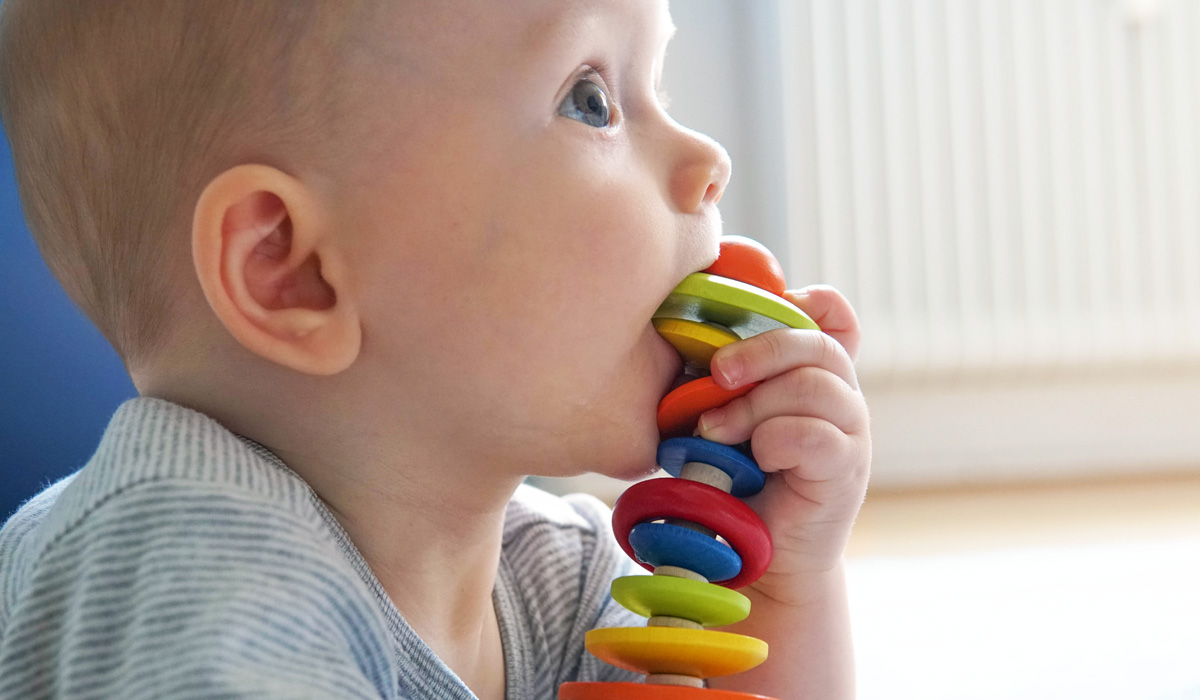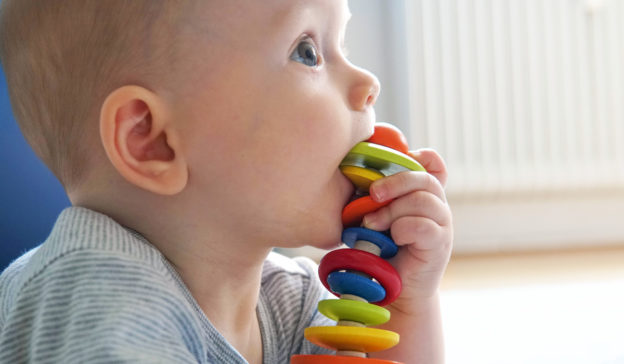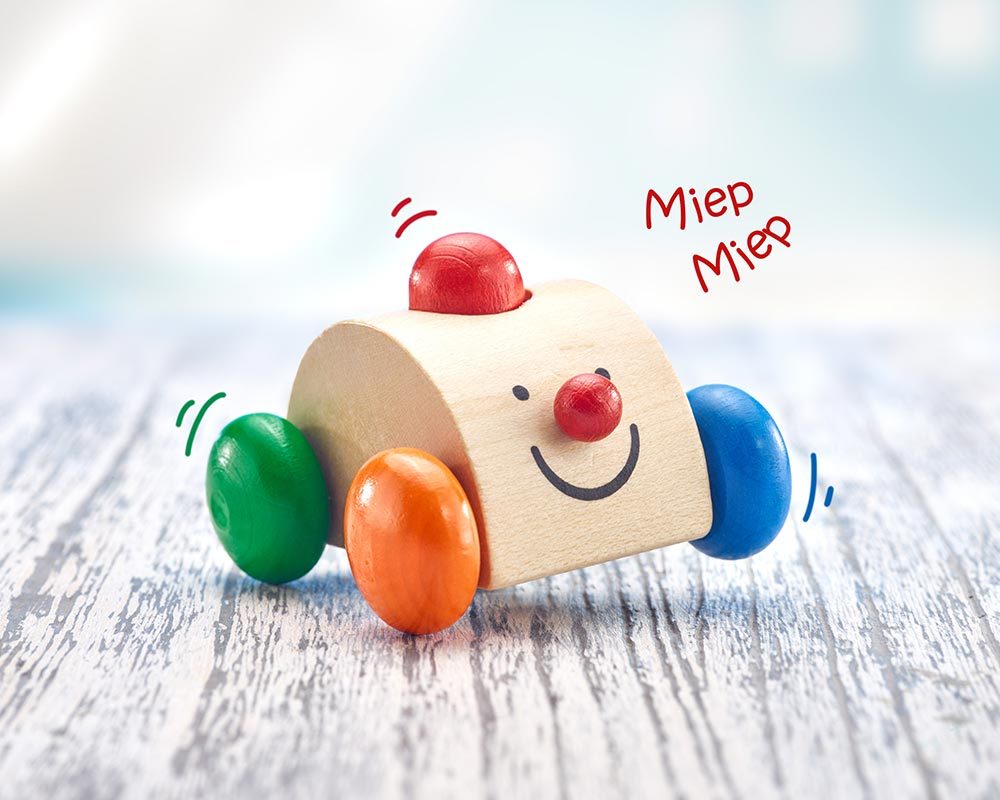Almost a third of your baby’s first year of life has already passed. Didn’t that go quickly! Your baby has already made a lot of progress in a very wide range of areas. Their movements are becoming more coordinated and they are slowly beginning to understand what is going on in the world around them. Here are the most significant milestones in development between 12 and 16 weeks.

Body movements
In their first three to four months, babies grow very fast, and many children have practically doubled their birth weight after 16 weeks. The development of the muscular-skeletal system also progresses rapidly.
At first most infants prefer to sleep on their backs. But after 12 weeks, children are increasingly comfortable sleeping on their fronts as well.
Your baby is now finding it easier and easier to keep their head up and support themselves with their arms at the same time, as if they are doing little press-ups. Encourage this natural movement and motivate your child by, for example, placing a colourful toy such as a roller grabbing toy a little out of reach of their arms. This way, your child has to move deliberately towards the object, focus on it with their eyes and then stretch out their arms. This is a fun way of promoting muscle development and coordination.
Grasping and listening
By this point, children are also becoming steadily more secure in their mastery of hand-eye coordination. They can deliberately grab at objects and consciously hold onto them. Easy-to-handle wooden grabbing rings can make this learning process easier, because they are light enough for babies to lift by themselves. At the same time, however, these toys are robust enough that vigorous shaking and throwing will not damage them.
Communication with your baby
In the first 12 weeks, your baby was only able to respond with looks and involuntary ‘babbling’. Now it is slowly becoming possible to distinguish between individual sounds they make. Some babies of this age are already trying to imitate their parents’ language. Answer your child, and prompt them to ‘speak’. This is how the first basic foundations for language are laid.





